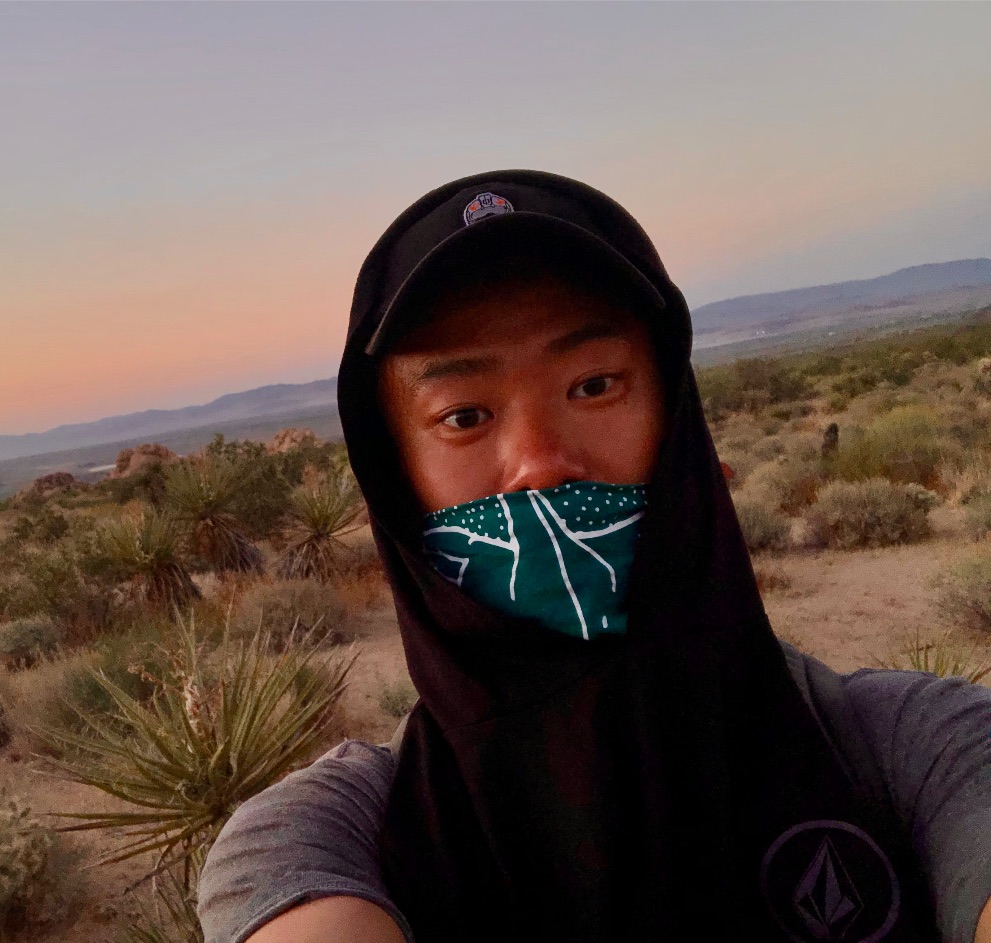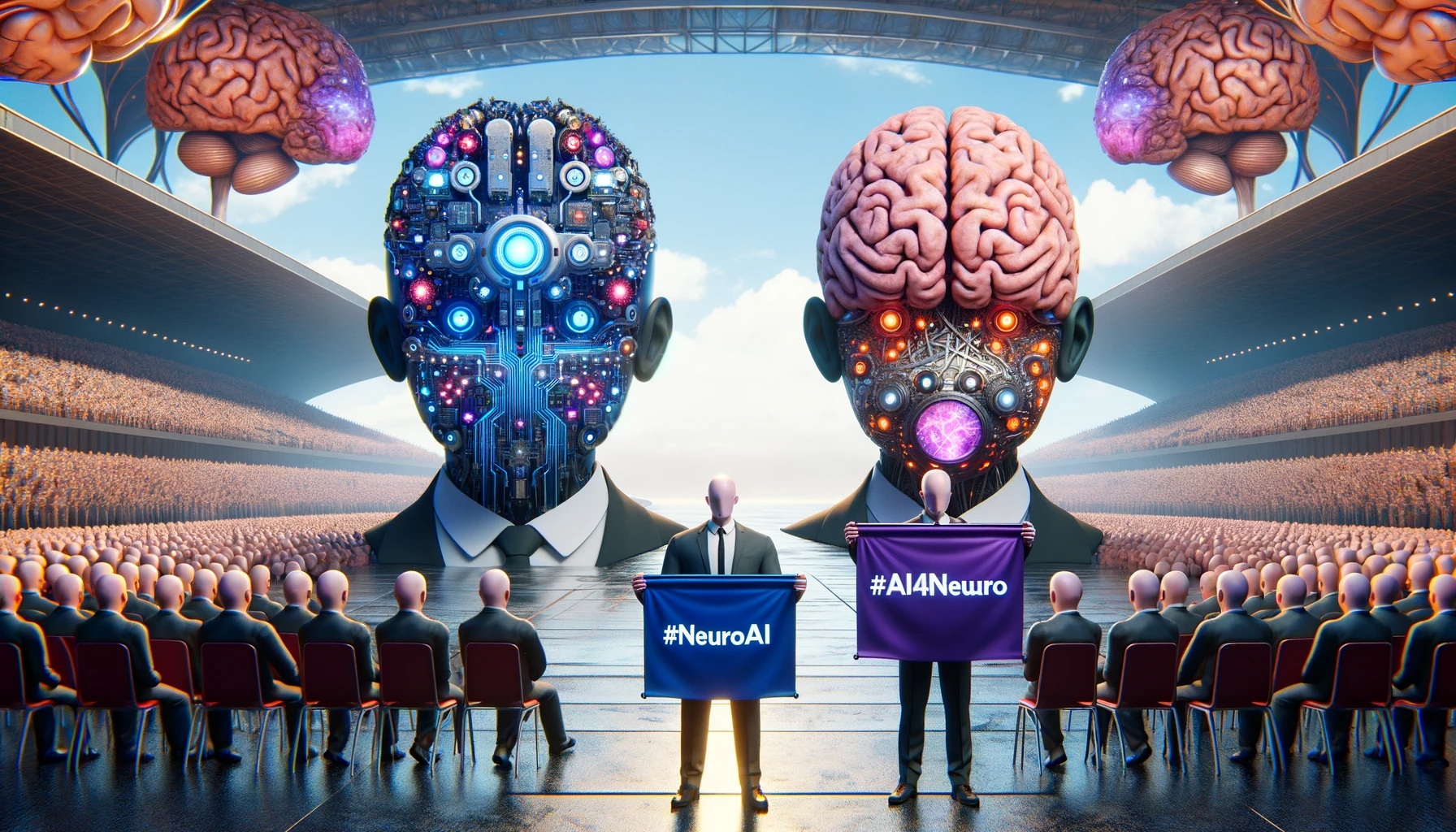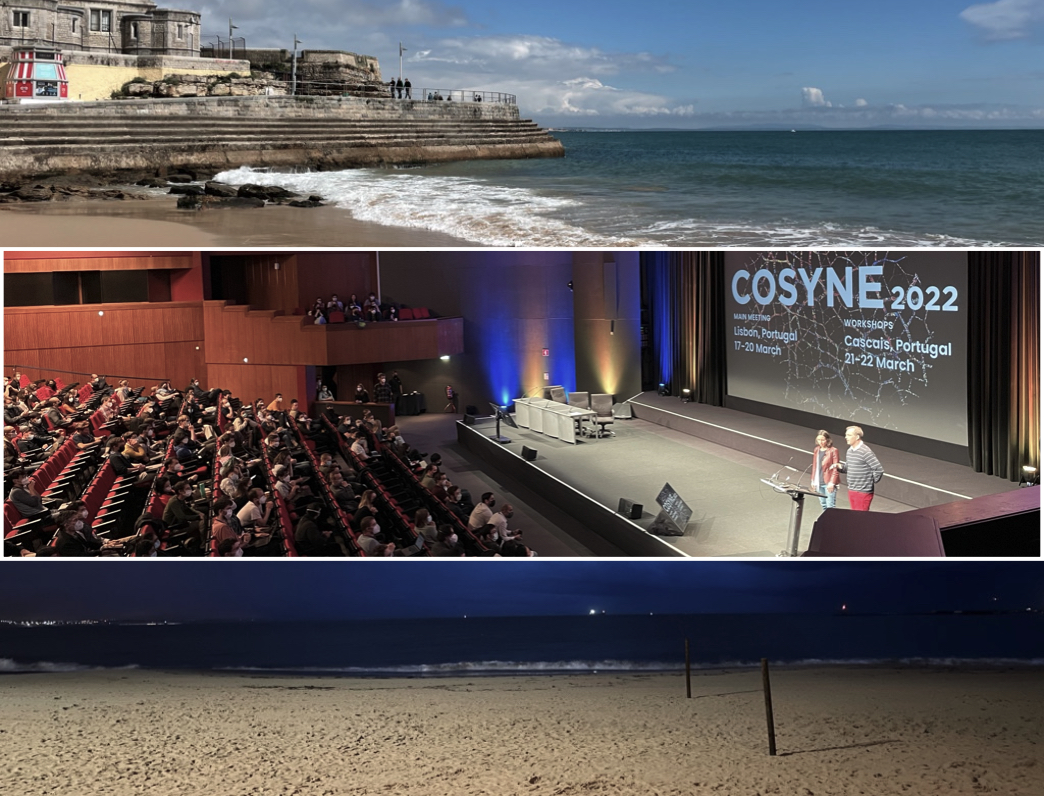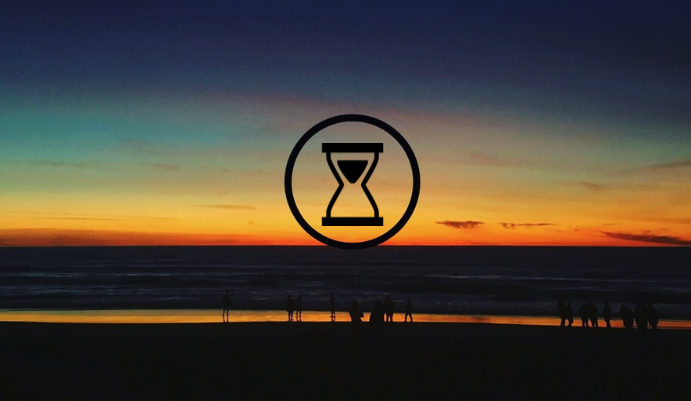It is now technically 10 minutes into the first day of second year, which means that, surprisingly, I finished this on time.
Blind Marathon
When I first arrived in San Diego for interview in February of 2014, 8 months
before I moved here for good, I asked myself: “how the hell does anyone get
any work done over here?” This is a reflection of two things. First, San Diego
is beautiful, even more so is La Jolla, where UCSD is located - a suburban
ocean-side paradise just north of San Diego proper. I love the ocean, the
horizon, the palette of colors that seemed to cover the entire visible
spectrum during those special sunsets…those sunsets that you get to see 6
days out of 7. And the beaches, my god, I’ve never been to a beach where there
was more sand than people until I came to La Jolla. Better yet, it’s true what
they say: UCSD is a 15 minute walk to the closest beach. Um what? Excuse me
while I go jump in the emerald water and ride the waves, bro (is this what we
say here?) The second thing, though, was not immediately obvious to me at the
time, but in hindsight made so much sense. The very question itself was a
reflection of my own fear: I was afraid that I would get lost in this little
sandy paradise, and that I wouldn’t be able to get any work done. After all,
committing to a PhD for 5+ years is not a light decision, seeing that I’ve got
family, friends, and a girlfriend that I could go back home to, so I was very
much aware of my timeline, before even taking into considerations of the fact
that I pretty much get kicked out after 5 years. I wasn’t in a rush to leave,
per se, and I knew that science, like all other creative endeavors, required
time: time for failures, to learn, and to catch up on all the things that I
was never exposed to in my engineering undergrad. But when faced with the two
imperatives, I did the obvious thing that any sensible person would do: work
12 hours a day instead of 8, so I can do more with less.
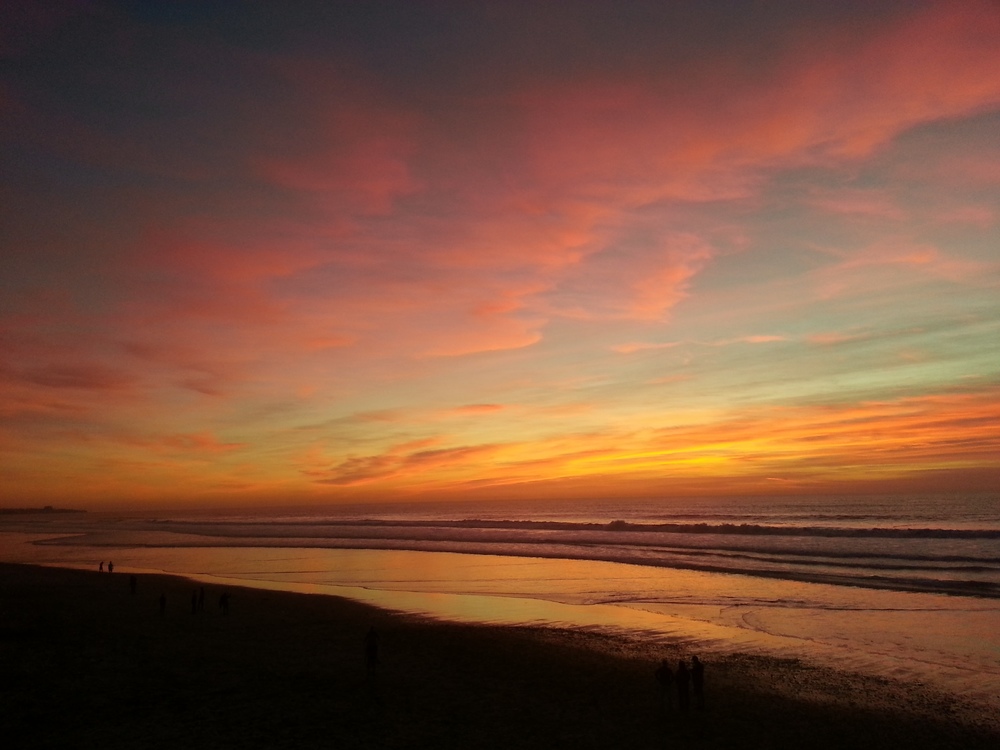 Just another day in La Jolla. And, of course, #nofilter.
Just another day in La Jolla. And, of course, #nofilter.
This wasn’t much of a problem at first. In fact, it was exhilarating. I was always reading papers, because there were so much neuroscience to cover and I started with so little. And when I started to get going on projects about midway through the year, it’s analysis after analysis after analysis. If you were to learn anything about graduate school, it’s that there is always more to do (or maybe I’m just a procrastinator). I have a to-do list filled with papers I want to read and ideas I want to test out, it’s literally never ending. It is a scary thing when you combine a thirst for knowing more with a fear of not doing enough - perhaps two of the most powerful drives a person can have. Eventually, you become consumed by the problems, and every waking moment is a possible inspiration to think harder or tinker some more. This is not to say that I’ve accomplished or produced much, but one aspect I do feel good about is the vast collection of neuroscience literature I’ve read in the past 12 months, simply because I didn’t know what a hippocampus was just 12 months ago. By way of analogy, my first year was like being dropped in the middle of a marathon, blindfolded. I don’t know where I was in the pack, and I don’t know how hard I had to run to get ahead, all I knew was that I just had to keep running in fear of a scary monster that was going to catch up and eat me.
Now, none of the above is a complaint about the hardship of graduate school, because it was neither asked of me nor required. In fact, my year-end review came back with the comment: “you need to take a vacation man.” It’s also not to say that I spent every living moment working, or that I was at all a model graduate student, because I definite spent time doing stupid shit, took time off to hang out with new-found friends and colleagues, and kept playing basketball (barely), though I didn’t spend nearly as much time as I had hoped on the beach, and I consider it a personal failure that I hadn’t tried surfing even once. What I do mean to say, having reflected on the year, is that when the two forces - passion and competitiveness - join hands, it’s very easy to spiral into a thoughtless routine and reach a burn-out stage with little warning. In other words, if we enforce the notion that what we are doing is what we are passionate in, mixed with the (Asian? North American?) culture of “always-be-doing”, then we tend to ignore our own bodies and the natural signals to relax and refocus. Eventually, some threshold is exceeded and fear overcomes passion, curiosity, and joy of exploring, at which point work becomes a burden and all I can do is youtube/imgur, possibly leading to existential crises and the conclusion that science is a pointless circle-jerk. Short of that, I had to squeeze every possible moment I had out of life and into work, which meant exercising less, both mind and body, and resort to things like Soylent (still love my goop though).
More subtly, there is a problem of not prioritizing. Essentially, all work related things are deemed to be more important than personal things, based on some notion that “I have to”, and all those things are weighted equally so I need to DO ALL THE THINGS. Actually, this doesn’t only apply to work, because sometimes I will make a note to write something for the blog because I really want to and haven’t taken the time to in a while, but as soon as I write it down on the list of “things I have to do”, it will inevitably not get done, at least without some dragging and screaming. I’m not saying to-do lists are evil, I’m saying, I personally have trouble listening to what my brain and body actually want to do, and instead, I impose what needs to be done based on some utility criterion, which is not the same thing as happiness, and that literally sucks the fun out of everything. Well, in the upcoming year, I definitely vow to pay more attention to my own flow (at a lack of a better word), partly because I’ve convinced myself that I’m not an idiot and I could definitely do this, but more so because, fundamentally, I believe passion and curiosity are much more powerful drives than fear and competition, and that if I listen to my own intuitions, things will naturally work out. Because, in reality, whether there is a monster chasing me or not, I probably can’t run any faster either way, so why put the mental burden of always going faster on myself?
Luck & Social Support
Two things that don’t get brought up quite enough in our “meritocratic” world,
especially in a profession like science, are luck, and people around you.
Lucky breaks, or opportunities, if you prefer, are undoubtedly helpful, but
they can manifest in many different ways, and usually much later on down the
road. One example: on the very first day of meeting Brad (aka Not A Polish
Bear aka my advisor), I inherited a half-baked collaboration out of nowhere
with a local stem cell lab, which had very little to do with what I thought I
would work on in grad school. Actually, at the time, the project seemed fully
baked - the data was being collected, the goals were clear, and the story for
the sell was better than most (well…I was sold). Exactly one year later, the
project made no demonstrable progress, at least not on my end of the work
(ha..ha…yup), mainly because the difficulty of an experimental science is
unpredictable and independent of, if not anti-correlated with, how badly you
want it to work. Though despite all that, we were able to write a successful
grant proposal which helped pay for my summer salary, among other things. More
importantly, I’ve made a good friend in the collaborating lab who’s now
teaching me how to take human stem cells, derived from skin tissue, and grow
them into neurons (WHAT?), as well as general wetlab know-hows, which
literally took what I thought was possible for my PhD and sent it into warp-
fucking-speed to the other end of the galaxy, no exaggerations.
Which brings me to the second thing: the right people play a huge role in a graduate student’s success and happiness. I don’t know about you, but whenever there’s a news article that starts with “scientists discovered…”, I automatically think of a bunch of boring old physicists in lab coats huddled around some beakers or a particle accelerator. In reality, “scientists discovered…” most probably means a bunch of guys and gals sitting around debating endlessly about the most minute (and possibly mundane) of details, over a drink or 3, until someone had a bright idea that challenged the current understanding of things - at least that’s the way it is in a young field like neuroscience. I say this because the majority of my ideas that was worth any salt came out of extended discussion with very bright people in my lab (almost always after or outside of formal lab meetings), or with sympathetic friends and classmates in my life, and I’ve heard many more stories through the year to corroborate this point. In fact, my understanding now is that the “smart” part of science comes from after-hours conversations and diligent reading, and the experiments and lab work are just balancing the books to check for errors, though serendipitous discoveries do happen once in a while. Aside from actual science, there are definitely dark moments during graduate school, be it from an unreasonable problem set, administrative bullshit, or just a plain bad day. These are first-world problems, sure, but no problem is a small problem when you’re in it, and having understanding friends, family, and significant others help tremendously in getting over the hump. These small things are the exact things you never think about as a naive young person out here trying to rock the world, but will surely come to appreciate, especially after being thrown into a brand new place under constant tension. So, call your parents, your buddies, and your S.O., and tell them they are directly contributing to the advancement of our species through science.
What Do I Actually Do?
As I alluded to in Part I, if you tell someone that graduate school isn’t
really school and you mainly work on a research problem, you run the risk of
them asking, “well, what do you do?” This is probably the bane of any graduate
students’ existence (other than “when do you graduate”). Why? Because half of
us literally have no fucking clue, and the other half simply cannot explain it
in 15 words, as you expect them to between consecutive sips of your beer over
mildly obnoxious music. Not that I don’t want to explain - it truly is a
struggle between saying something so simple and watered-down that you’d feel
like I was patronizing you or being unreasonably curt (“I’m working on a cure
for autism”), and saying something full-blown that truthfully represents the
problem but risking you consuming your entire beverage and falling asleep, or
worse, think that I was a pompous asshole (“What kind of autism? Oh well you
see it’s really just a disease model, and I’m obviously not allowed to work on
or even touch any real patients, so what I actually do is create in-vitro -
that means in a lab environment - models of the disease that we think
represents the real one so I can - hello? Hello?”). None of this, of course,
is your fault as the lay listener. In fact, I very much like the idea of a
science elevator pitch, or a one-liner, though graduate students do have very
limited opportunities to practice this aspect of their lives, because if you
are a graduate student, 90% of your daily interactions are probably with other
graduate students, who are probably also involved in similar problems.
Nevertheless, I am working on it. Maybe next time I’ll tell the bus driver
what I’m working on. On second thought, maybe I’ll start with my parents and
girlfriend.
So what do I actually do? The stem cell collaboration project is rather simple in concept, at least the motivation behind it: patients with genetic brain disorders often present compromised mental capacity in one way or another, and we want to study their brains to formalize the biological problem in order to understand it and ultimately come up with treatments for it. The obvious problem is that you can’t just cut out people’s brains, so instead, somebody came up with a truly ingenious work-around, which is to transform a rather disposable part of their body (sorry, that means you, skin) into stem cells, which can then be turned into whatever. In our case, brain cells, specifically such that the genetic defect is present, so in theory, the brain cells present exactly the same problems as the ones in a person’s brain. In that way, we can grow these brain cells into tiny surrogates of the patient’s brain, and compare with a network of wild-type (regularly functioning) brain cells to see what irregular behaviours arise out of diseased cells. You can imagine, for example, trying to detect a certain type of protein that is crucial for brain functions, to see if there’s less or more of it in the diseased cells. Instead of a protein, we are looking for abnormal activity in their electrical signatures. I can’t really elaborate more because I actually don’t know, at the moment, what is the exact signature that goes wrong, but we have ideas.
My main project currently is somewhat related. Like I just said, we usually don’t cut into people’s brains, so we can only afford to record electricity from the scalp to study the brain, and even when we do cut, under very special circumstances like a required neurosurgery, we usually only cut open the skull, which allows us to place electrodes on top of the brain surface, but not into the brain itself. When I say us, by the way, I mean not us, and very capable neurosurgeons (but not bigoted Republican nominees). Observing the brain electrically is like trying to hear someone in a really crowded room. As it stands right now, the gold standard is to be able to hear exactly what a few individuals are saying (single neurons). To do that, though, one has to shove pointy electrodes INTO the brain, not just on top of, which is a hard thing to convince undergraduate participants to be a part of. Well, undergrads all have their price, but it’s probably harder to convince the ethics board to let you do that. Anyway, short of doing that, we are left with surface recordings of the brain, which is like listening to the general murmuring of the room and hearing nothing in particular. However, that is not to say that the general murmuring does not contain information. In the past, people in the field have mainly been interested in, roughly speaking, how loudly a certain quadrant of the room is overall, which, outside of this analogy, has implications (correlations) with some aspect of behavior, but we’re really not able to parse out too much of what’s being said. My work, and the interest of the lab, is to be able to derive more information out of the murmuring. For example, even if you couldn’t identify who said what exactly, being able to parse out common topics of conversation when several people talk about things like “cheese” or “Donald Trump” is still incredibly useful and allows you to make certain predictions because, well, you can make more sense of these people. If anything, it will let you know which part of the room to migrate towards to get away from potentially stupid conversations. In such a way, we are by-passing experimental limitations and (theoretically) making use of a signal that’s largely been thought of to have limited use. It’s a very interesting problem from a scientific/mathematical perspective, but also could have very practical applications in, I hate to use this term but, “brain- reading” technologies, without being extremely intrusive (I mean medically, because nothing is more intrusive than brain-reading, really). For a teaser, see this.
Concluding Remarks
I hope this has provided a glimpse of what it’s like to be a graduate student
in the Department of Cognitive Science, working on Computational Neuroscience,
but also dabbling in Tissue Engineering. Like I said, I realized that my
experience after a year in grad school was, more than anything, a factor of my
own personality, which made it unnecessarily stressful at times. It has also
been fairly limited, as I ramp up to doing more research than courses. Maybe
it’s confirmation bias, or trying to resolve my internal cognitive dissonance,
but I am really fortunate in that I have a lot of fun with what I do, largely
due to where I’m doing it and who’s helping me to do it, and who I can turn to
when I’m momentarily tired of doing it. Being across the continent from where
I call home isn’t the greatest (I think I’m starting to sound like I’d rather
live in my parents’ basement for the rest of my life), but for now, I will
make the best of my time away from those ungodly winters (but also live with
THE worst public transportation), and enjoy these few years of absolute
intellectual and personal freedom.
As always, comments and questions are more than welcome, especially if you’re a graduate student scouring from one event to another struggling to feed yourself - JOIN THE SOYLENT WAY, MAN.
